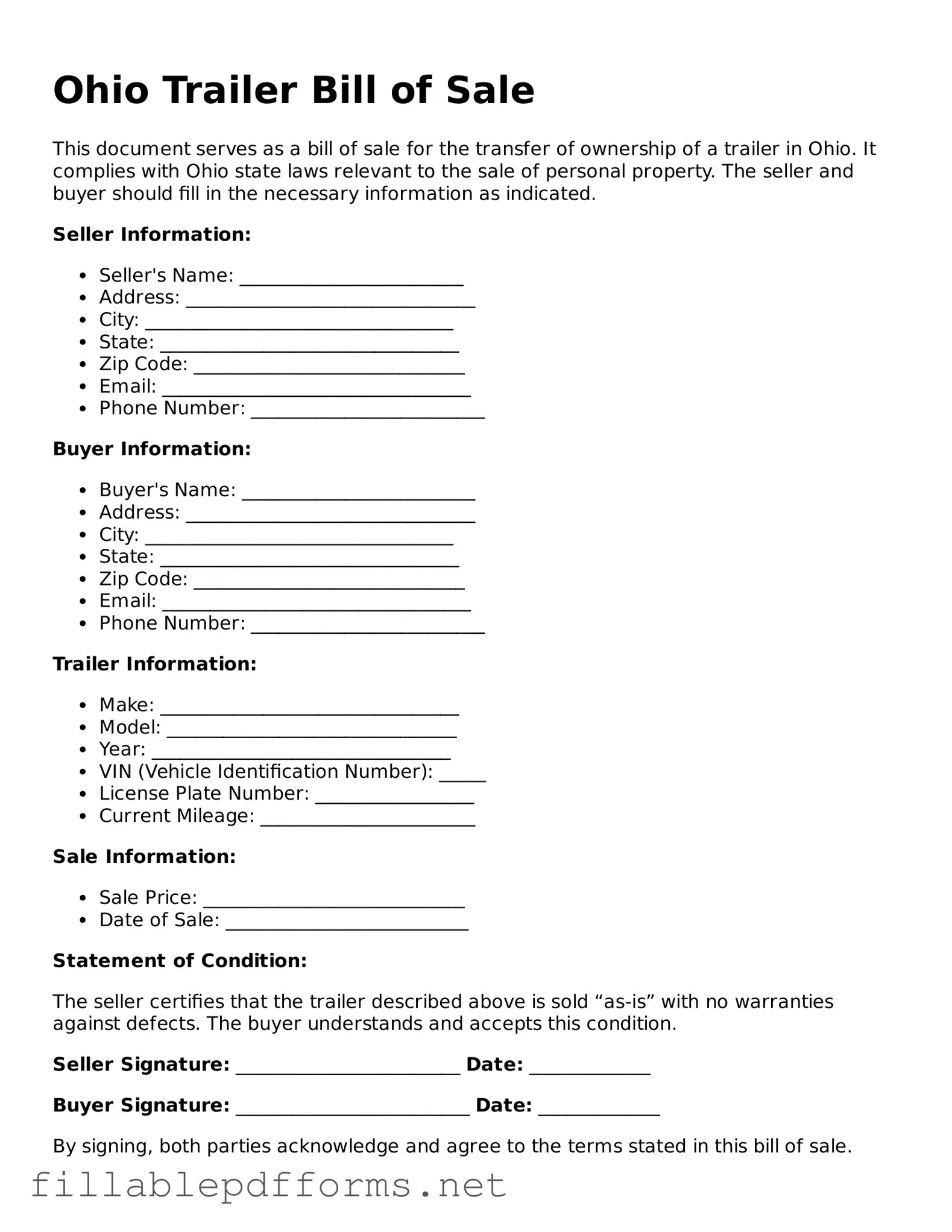Attorney-Verified Trailer Bill of Sale Form for Ohio State
The Ohio Trailer Bill of Sale form is a legal document that facilitates the transfer of ownership of a trailer from one party to another. This form serves as proof of the transaction, detailing essential information about the trailer and the parties involved. Properly completing this document is crucial for ensuring a smooth transfer and for future reference regarding ownership.
Launch Editor Here

Attorney-Verified Trailer Bill of Sale Form for Ohio State
Launch Editor Here

Launch Editor Here
or
▼ Trailer Bill of Sale PDF
Almost there — finish the form
Complete Trailer Bill of Sale online fast — no printing, no scanning.